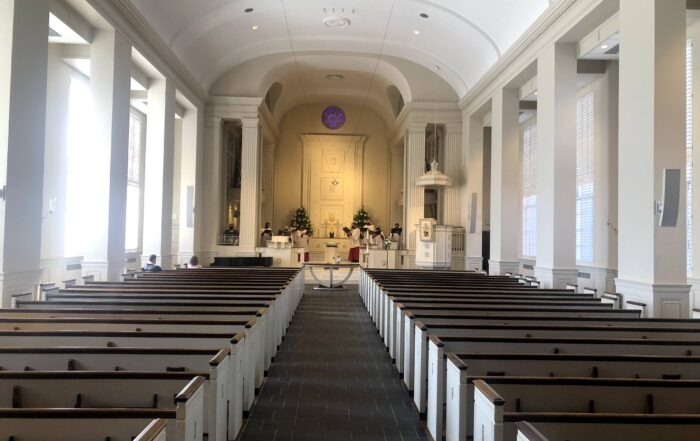In our world of cell phones, emails, Facebook, Zoom, and Twitter—keeping us constantly in contact with others–we are lonelier than ever. A Duke University sociology study concluded, Americans’ circle of confidants has shrunk dramatically in the past two decades and the number of people who say they have no one with whom to discuss important matters has more than doubled…
One of the tragic results of the COVID pandemic is that this sense of loneliness has only been acerbated. The Harvard Graduate School of Education published a report in February 2021 and concluded:
Alarming numbers of Americans are lonely. According to our recent national survey of approximately 950 Americans, 36% of respondents reported feeling lonely “frequently” or “almost all the time or all the time” in the prior four weeks. A startling 61% of young people aged 18-25 and 51% of mothers with young children reported these miserable degrees of loneliness. Survey respondents also reported substantial increases in loneliness since the outbreak of the pandemic.
Loneliness seems be a part of the human condition—Adam and Eve experienced the same. When we turn to the Bible’s second creation story in Gen 2:4b-25, God gets “down and dirty” with creation, forming the human (adam) from the land or clay (adamah). God performs CPR on the newly formed lump of clay, breathing into the dirt-creature’s nostrils “the breath of life.”
However, when God looked at this part of God’s creation, God said, It is NOT good! “It is not good that the man should be alone…” The man is alone and God’s presence will not suffice.
Marsha Mirkin, a Jewish scholar at Brandeis University writes,
[In this moment] “a critical relational value is introduced to the world. Throughout the Hebrew Bible people are told not to be alone–partners and community are central to individual and communal development. We see this when Abraham is told to leave his father’s house and the home of his birth, and yet he leaves with his wife and community. We see it when Moses returns to Egypt only when he is promised that his brother will go with him, and much later, when Ruth decides to accompany Naomi on her journey home. Being alone is not a value in this Holy Book.
Walter Brueggemann, the former Columbia Seminary Old Testament professor, writes. “The creation of the other is “the crowning event in the narrative and the fulfillment of humanity.”
“It is not good that man should be alone; I will make him a helper as his partner. So…the Lord God caused a deep sleep to fall upon the man, and he slept; then [God] took one of [the man’s] ribs and closed up its place with flesh. And the rib that the Lord God had taken from the man [God] made into a woman…”
God created the two for an egalitarian relationship, for they share the same nature and thus are accorded the same dignity, the same position, the same respect, and supremely, the same love.
Life is never meant to be lived in isolation of others. Life is meant to be lived in a community of equality. Life is not right in God’s creation until you and I are fed, nurtured and strengthened by others. Do you remember those words of T. S. Eliot, “What life have you if you have not life together?
One of the great gifts that you and I and the faith community can give to others is the gift of a welcoming community of unconditional love. Yet, sometimes, we have drastically failed in offering such a gift and so therefore many are looking for the gift from other sources.
I read with interest an article in The Atlantic entitled, “The Church of CrossFit.” Julie Beck describes how CrossFit and other gyms, with the rise of isolation and loneliness, are starting to function in religious ways by providing a place of connection, welcome, community, and relationships. She quotes Casper ter Kuile, a fellow at Harvard Divinity School, who says, “Strikingly, spaces traditionally meant for exercise have become the locations of shared, transformative experience.” One CrossFit owner says, “CrossFit to me simply means family, a very hard working family…”
God has created us with the need for others. In the face of growing isolation and loneliness, one of the greatest gifts we can offer others is the gift of welcome, embrace, community, and unconditional love. Oh, that our faith communities—you and I – might be that gift to others. What an opportunity for each of us as we are coming out of our COVID isolation.





